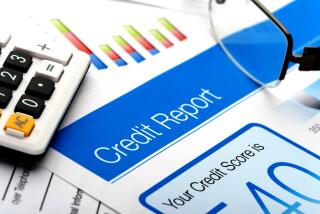Don’t like the gift card you got? Try an online exchange
So the good news is that Aunt Lula finally remembered your birthday. The bad news is that she sent you a gift card to her favorite store, and you’d rather eat bees than shop there.
What to do? A burgeoning number of online card exchanges are making it possible to turn unwanted cards into cash, cards from other retailers or even playing time on online games.
And because sellers of unused cards typically have to sell them at a discount, people are buying from the exchange sites to cut costs.
Ruben Collazo, a software engineer in Tampa, Fla., has used websites like GiftCardRescue and Plastic Jungle to score discount cards from retailers including Lowe’s and Best Buy. “Over the last year, I’ve saved 9% overall,” he said.
You can give or get cards for restaurants, movies, sporting goods, even Disneyland. “The total value of gift cards sold in 2010 was about $100 billion, and 10% of those go unused,” said Kwame Kuadey, chief executive of GiftCardRescue, which is based near Baltimore.
“A lot of people don’t know they can sell their gift cards for cash,” Kuadey added.
That’s slowly changing. New competitors are jumping into the market, and Kuadey said his site’s revenues have quadrupled each of the last two years to $2 million.
Still, that’s less than a quarter of the transactions handled on industry leader Plastic Jungle, which was launched more than five years ago.
“There’s now about $30 billion in unused gift cards out there,” Plastic Jungle CEO Bruce Bower said. “There’s a huge amount of value that’s just gotten stuck in the economy.”
Bower and Kuadey each said their companies buy gift cards for 80% to 85% of their face value and sell them for 85% to 90% face value. The exchanges make money by pocketing the difference.
The CEO of a brand-new entrant in the market said that aspect of the card-exchange phenomenon is unfair. “It’s very important to us that if you have a gift card for $20, you get $20 for it,” said Marc Rochman, who launched Redwood City, Calif.-based Openbucks this month.
Rochman is a veteran of the card industry; he founded Card USA, which manufactures hundreds of millions of gift and prepaid mobile cards for retailers. “From the large chains like Starbucks down to the local bakery, almost everybody has a gift card program,” he said. And recently, online gaming companies such as Zynga Inc. have been getting into the act.
Rochman’s idea: Let consumers use the same cards at different retailers, online or off. Openbucks has forged agreements with a handful of major chains, including Subway and CVS Pharmacy, to allow their cards to be spent at game sites such as World Golf Tour and Parallel Kingdom.
Rochman said that not only gives consumers another way to use gift cards but also lets people who don’t have access to credit cards — including teens — participate in online commerce. After a beta launch five months ago, Rochman said his site already has tens of thousands of users.
Of course, any fast-growing market draws its share of potential scams. Kuadey and Bower say their companies provide safer alternatives to buying cards on outlets such as Craigslist or EBay, because the exchanges offer money-back guarantees to users who might get stuck with a fraudulent card. Plastic Jungle also works with card retailers on the front end to verify that cards sold on the site are valid.
Still, Bower said, “there are instances where there’s fraud in the system.”
Bill Hardekopf, CEO of LowCards.com, warns shoppers to steer clear of sites that ask for a Social Security number or bank account information.
“If they start asking you for personal information, that would be a red flag for me,” said Hardekopf, whose Birmingham, Ala., company helps consumers research and choose among credit card offers.
Collazo, the Tampa shopper, said it’s important to check a site’s terms and conditions carefully, because shipping and return policies can vary and some sites won’t replace cards lost in the mail.
But overall, “what I like about this industry is there are no undisclosed ‘gotchas’ anywhere,” Collazo said. “There aren’t any shipping costs or hidden fees; if you want a $100 card, you pay $80.
“It’s a great way to save money.”
Delevett writes for the San Jose Mercury News/McClatchy.
More to Read
Sign up for The Wild
We’ll help you find the best places to hike, bike and run, as well as the perfect silent spots for meditation and yoga.
You may occasionally receive promotional content from the Los Angeles Times.










